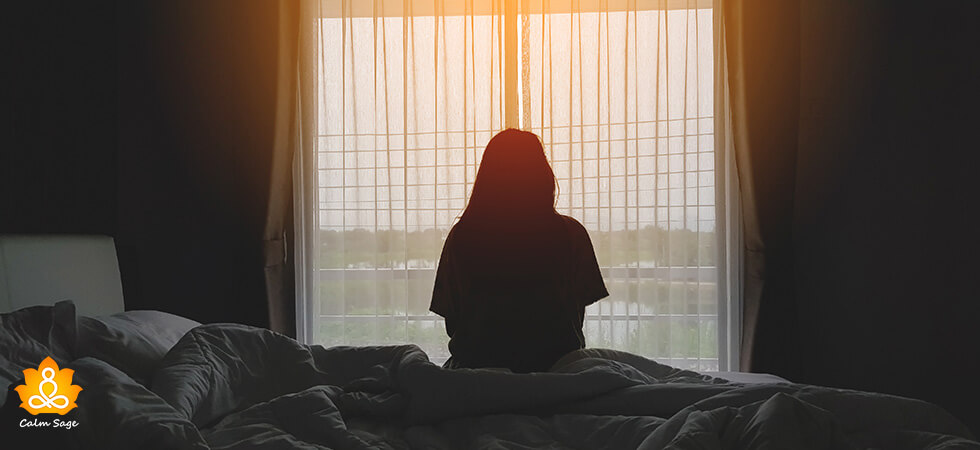Understanding Touch Starvation And Its Effects on Our Mental Well-Being

As an introvert, I’ve never been comfortable in a crowd or in a social environment where I’m required to interact with strangers. Naturally, this means that I won’t be comfortable when someone I don’t know comes to me and initiates an interaction that includes physical contact. I have friends whose love language is physical touch, so I know that while physical contact for many people is a comfort, there are still some people who find it difficult to initiate or accept physical touch.
Long-term denial of physical touch – intentional or not – can cause touch deprivation or touch starvation. Touch starvation happens when you’re denied physical contact with another living being. Whether we accept it or not, humans need physical touch or skin-to-skin contact to maintain good health and well-being.
Have you ever heard the fact that we need four hugs a day for survival? “We need eight hugs a day for maintenance and 12 hugs a day for growth,” says family therapist Virginia Satir. While hugs have their benefits, not everyone receives them every day. When you’re touch deprived, it can lead to touch starvation.
It is believed that physical touch from loved ones can help alleviate sadness and improve mood. Regular physical contact – such as cuddling and hugging – is also believed to help increase the production of oxytocin, the love hormone and one of the happy hormones.
So, what happens to our mental health and physical health when we’re touch-starved? Can touch starvation lead to a mental decline? Let’s explore more on what are the signs of touch starvation and how it affects your mental health in this article.
The Importance of Physical Touch

In a study published in 2015, it was found that touch from loved ones can improve emotional bonds and promote communication between the participants. Touch is believed to activate the brain areas that promote reactions, physiological changes, and thoughts. In another study, published in 2017, it was found that physical touch can help comfort people and distressed children.
In another review from 2015, it was found that hugging can provide social support. Lack of touch can affect the production of oxytocin, a hormone that we need to stay happy and positive. Without oxytocin, you become more susceptible to stress and respiratory infection.
Lack of physical touch can also lead to loneliness and social isolation, the leading causes of depression and poor mental health and well-being.
The Causes of Touch Starvation
Touch starvation can happen when you don’t receive enough physical comfort or touch from another living being – be it a person or a pet. Orphaned children and older people living in old age homes and hospitals are more susceptible to touch starvation, however, if you’ve grown up in a household where physical contact was withheld, then you may also experience touch starvation.
Moreover, since the COVID-19 pandemic, there has been a constant fear in many people when it comes to allowing, initiating, and accepting physical touch from others. Physical distancing during the pandemic has affected many people and caused touch starvation.
If you live alone – away from your family and friends – and are not seeing anyone, then you are also likely to develop touch starvation. Denial of a simple handshake and hug can also lead to touch deprivation. What we fail to realize is that these seemingly simple gestures can be a huge contributing factor to the production of oxytocin and depriving these gestures can affect emotional and social bonding in relationships.
Signs Someone is Touch Starved

It could be challenging to figure out if someone is touch starved, however, there are some common signs that you can watch out for if you suspect being touch starved. Here are some of the common signs someone is touch starved;
- Experiencing feelings of loneliness and depression
- Lower life satisfaction
- Increased tiredness
- Trouble sleeping
- Higher levels of stress
- Increased anxiety
If you find yourself stimulating touch by engaging in the following behaviors, then you may be touch starved;
- Taking a long time in bath or shower
- Cuddling under a heavy blanket even in summers
- Hugging a body pillow or cushion
- Clinging to a pet or a plushie
Effects of Lack of Physical Touch
Touch starvation can have adverse effects on our mental health. Some of the common effects of lack of physical touch can include;
1. Increased stress, depression, and anxiety
Touch starvation is believed to increase stress, depression, and anxiety. When you’re struggling with these issues, your body releases cortisol that can increase your blood pressure, and heart rate, and cause muscle tension. Further, these issues can affect your immunity, making you susceptible to infections.
2. Increased loneliness
When you fail to receive physical comfort, you experience feelings of loneliness and lack of security. We, as humans, need a touch from loved ones to feel comfortable and safe, so a lack of physical touch can make you feel unsafe, leading to increased feelings of emptiness and loneliness. Chronic loneliness can cause cognitive decline and affect your memory.
Tips to Self-Soothe When You Are Touch Starved

If you’re experiencing touch starvation, then here are some tips to help you self-soothe;
1. Reach out to loved ones:
If you can, then reach out to your loved ones and ask them for a hug! One hug or cuddle with a loved one can help you feel the comfort and safety your body and mind need. This physical comfort can also help reduce the stress and anxiety that you might be feeling.
2. Get some exercise:
If you want to cope with being touch starved, then you can also go out and exercise. Yoga, dancing, and other cardio exercises can help in the production of endorphins, one of the happy hormones, and can reduce the pain you might feel from being touch starved.
3. Cuddle under a weighted blanket:
Weighted blankets have many benefits and can help people who are touch averse and don’t feel comfortable with physical touch. Cuddling under a blanket can give you a feeling of comfort and being hugged. So, if you’re one of those people who don’t like physical touch from others, a weighted blanket can do the work for you.
4. Try some self-massage:
Self-massage can also help you cope with being touch starved as well as help stimulate your nerves which can help reduce stress and anxiety. So, if you don’t have a person to hug or a pet to cuddle, light some candles, warm some essential oils, and give yourself a massage.
5. Sing or dance:
If you are touch starved, then singing and dancing are some activities that can help increase the production of endorphins as well as oxytocin. When you feel lonely, just plug in your favorite songs and sing or dance like no one’s watching!
6. Cuddle a body pillow:
Hugging a body pillow can also help you self-soothe when you are touch-starved. A body pillow can give the illusion of hugging a person and can help reduce stress as well as give you the comfort of a cuddle.
7. Seek professional support:
If your touch starvation symptoms are increasing, then it might be good to consider seeking professional support. If your bad mood last more than two weeks, interfere with your daily activities, and makes you feel hopeless and lonely, then you might find comfort in therapy.
Advice From The Writer’s Desk…
Humans are wired to feel comfort in touch and without physical touch, we can become more susceptible to chronic mental health consequences such as increased anxiety and depression. I have felt and experienced touch starvation and let me tell you; it’s not pretty. If you’re going through this and feel touch starved, then you can find simple self-soothing ways to cope with being touch starved.
If you still don’t feel comfortable and continue to feel the effects of lack of physical touch, then you can reach out to your loved ones or a professional for support.
I hope you found this article helpful. For more, you can connect with us on our social media or leave a message at info@calmsage.com. Let me know what you think about touch starvation and its effects on mental health in the comments below.
Take Care!




















